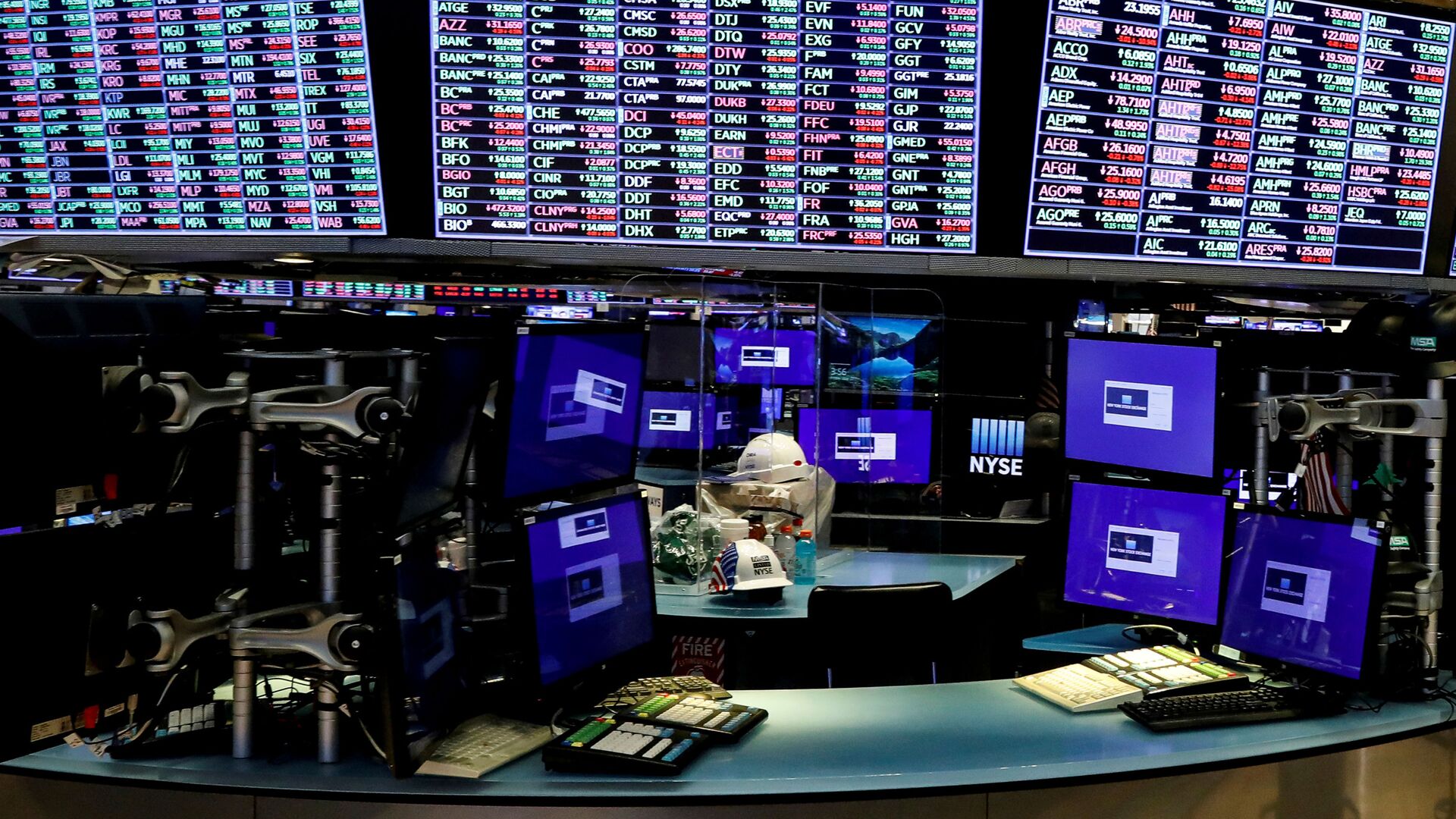Dow Jones Dips 526 Points After Dismal Inflation Report Shows Worst Dollar Depreciation in 40 Years
21:03 GMT 10.02.2022 (Updated: 13:55 GMT 19.12.2022)

© REUTERS / Brendan McDermid
Subscribe
US stocks suffered on Thursday in the wake of news from the Federal Reserve that inflation has hit its worst point since the early 1980s.
When the closing bell rang at the New York Stock Exchange on Thursday, significant damage had been done to the US stock indices. The Dow Jones Industrial Average (DJIA) fell by 526.47 points, a 1.47% decline to 35,241.59. The S&P 500 was driven down by 1.81%, falling 83.1 points to finish at 4,504.08. The Nasdaq Composite also fell by 304.73 points, a 2.1% decline that left the index at 14,185.64.
In fact, the mass selloffs on Wall Street were more so driven by a comment by St. Louis Federal Reserve President James Bullard, who told Bloomberg on Thursday that he supports increasing interest rates by one percentage point by July in order to stave off continued depreciation of the US dollar.
According to the Financial Times, the 10-year US Treasury note rose to 2.04%, its highest point since August 2019, but the price changes in shorter-term notes suggested that anticipation of the Fed’s future behavior was of greater concern to investors than inflation.
Earlier in the day, the US Bureau of Labor Statistics (BLS) published its consumer price index for January 2022, revealing that the cost of goods had increased an average of 7.5% over the previous 12 months. According to CNBC, it was the largest increase since 1982 and exceeded the predicted inflation rate of 7.2%.
Such a rate hike would also be the Fed’s largest since 2000, when it attempted to rein in the dot-com bubble caused by the massive growth of tech companies as the internet was opened up to public use.
The cause of the inflation has become an issue of tight political contention. Republicans, who oppose US President Joe Biden's spending bills, have claimed that the significant amounts of money they have put into the economy have decreased the value of the dollar. They have suggested that Biden's flagging approval numbers are also related to the rise in prices.
However, some economists have pointed to problems with global supply chains created by attempts to control the COVID-19 pandemic, which have created production and transit bottlenecks and caused demand to increase much faster than supply, with merchants increasing their prices in response to the shortages.
Because of its ties to the supply chain, Fed economists have expected the inflation to be short-lived. However, Fed Chairman Jerome Powell began walking back that prediction in recent weeks.
During the COVID-19 pandemic, the Fed has preferred to keep interest rates low even in spite of rising inflation, fearing that increasing the rate would have a detrimental effect on the extremely precarious employment market.


